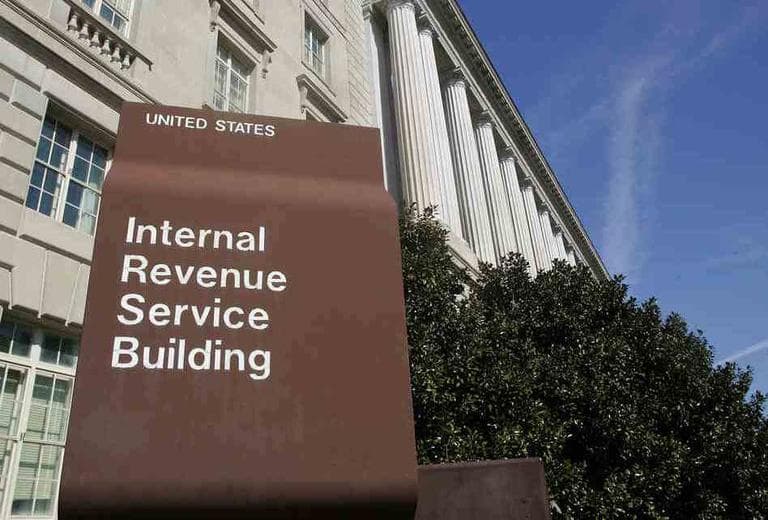Advertisement
How Did The IRS Get The Job Of Vetting Political Activity?
Resume
Republicans continue to ask who in the Obama administration knew what — and when — about the IRS’s scrutiny of conservative political groups seeking tax-exempt status.
Newspapers over the weekend reported that one week before the news broke publicly, White House counsel Kathryn Ruemmler was notified that an inspector general report on the controversial subject was nearing completion.
"By earning the classification of social welfare, they're avoiding the campaign disclosure that's required for political organizations."
Prof. Donald Tobin
Some political pundits point out that had Ruemmler notified the president’s chief of staff or the president himself, she could have been accused of interfering with the inspector general’s work.
To get some context on why the IRS was scrutinizing social and political action groups in the first place, we turned to Professor Donald Tobin of Ohio State University's Moritz College of Law. He's an expert on the intersection of tax and campaign finance laws.
The 501(c)(4) tax classification for "social welfare organizations" is at the center of the issue, he said.
"A social welfare organization needs to formed to promote the social welfare of the country. And that could be engaging in the promotion — in some way — of the common good and general welfare of the people in the community. So it's a very, very broad standard," Tobin told Here & Now.
Social welfare organizations are allowed to engage in political advocacy, but "it can't be the primary purpose of the organization," he said. That would make it a 527 political organization, which is also tax-exempt, but is required to publicly disclose its donors.
"What groups are trying to do here is avoid having to disclose," Tobin said. "By earning the classification of social welfare, they're avoiding the campaign disclosure that's required for political organizations. So that's really the underpinning of why we have this mess of the IRS having to get in and investigate and figure out whether an organization is political or not."
- What's your take on the 501(c)(4) tax classification? Tell us on Facebook or in the comments.
Guest:
- Donald Tobin, associate dean at the Moritz College of Law at Ohio State University. He's also a leading expert on the intersection of tax and campaign finance laws.
This segment aired on May 20, 2013.